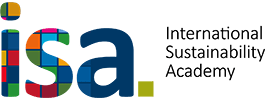PARTICIPANTS 2022/23
The application process:
The applications underwent two independent ratings in the first round of the process following a scoring system of 15 different aspects. Nearly 300 applicants were asked in the first round of the process to send us documentation and a detailed project outline. Among them, 30 participants were selected to conduct video conference interviews.
Finally, the ISA team selected the following thirteen fellows for the ISA program 2021/22 which we proudly present here:
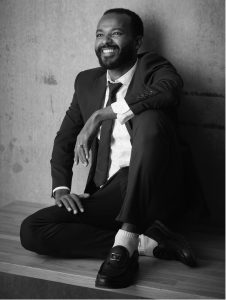 Abel Abebe, from Ethiopia. With his project, he would like to ensure water, sanitation, and hygiene for poor and disadvantaged people in the Konso region. During his stay in Germany, he will be investigating a place/zone for sitting a new borehole to be drilled, developing spring and new rainwater catchments. Furthermore, he will be raising awareness about rainwater harvesting systems. This project mainly aims to assess the groundwater/surface water availability and water quality mapping in the areas vulnerable to drought in Konso zone using different data collection and implementation approaches. Secondly, this project will tackle water quality and water supply issues in the area by studying the spatial distribution of water parameters and treatment techniques that can be applied to the water that is already gathered. With his project, he will contribute to SDG 3 – good health and well-being, and SDG 6 – clean water and sanitation.
Abel Abebe, from Ethiopia. With his project, he would like to ensure water, sanitation, and hygiene for poor and disadvantaged people in the Konso region. During his stay in Germany, he will be investigating a place/zone for sitting a new borehole to be drilled, developing spring and new rainwater catchments. Furthermore, he will be raising awareness about rainwater harvesting systems. This project mainly aims to assess the groundwater/surface water availability and water quality mapping in the areas vulnerable to drought in Konso zone using different data collection and implementation approaches. Secondly, this project will tackle water quality and water supply issues in the area by studying the spatial distribution of water parameters and treatment techniques that can be applied to the water that is already gathered. With his project, he will contribute to SDG 3 – good health and well-being, and SDG 6 – clean water and sanitation.
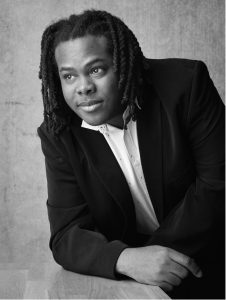 Adrian O. Watson from Jamaica. His social enterprise – Honai Beez Apiary – is utilizing beekeeping to combat climate change by transforming open spaces and vacant lots into green spaces and apiaries for the conservation of honeybees, to help create awareness for pollinators through the education of local communities. Honai Beez Apiary hopes to form a network of beekeepers and funds to support the growth of seedlings to reforest both urban and rural open spaces through the establishment of communal green spaces and reforesting hills sides to prevent squatting, criminal activities combat dust in urban spaces. In addition to this effort, Adrian´s solution includes the production of beehives utilizing a Computer Numeric Controlled (CNC) Router and the use of Bamboo ply. With his ISA project, he plans to develop a beekeeping social enterprise, urban beekeeping training, bamboo beehive workshop, and environmental training for young people and the general public in Jamaica. With his project he will address SDG 13 – climate action and SDG 15 – life on land.
Adrian O. Watson from Jamaica. His social enterprise – Honai Beez Apiary – is utilizing beekeeping to combat climate change by transforming open spaces and vacant lots into green spaces and apiaries for the conservation of honeybees, to help create awareness for pollinators through the education of local communities. Honai Beez Apiary hopes to form a network of beekeepers and funds to support the growth of seedlings to reforest both urban and rural open spaces through the establishment of communal green spaces and reforesting hills sides to prevent squatting, criminal activities combat dust in urban spaces. In addition to this effort, Adrian´s solution includes the production of beehives utilizing a Computer Numeric Controlled (CNC) Router and the use of Bamboo ply. With his ISA project, he plans to develop a beekeeping social enterprise, urban beekeeping training, bamboo beehive workshop, and environmental training for young people and the general public in Jamaica. With his project he will address SDG 13 – climate action and SDG 15 – life on land.
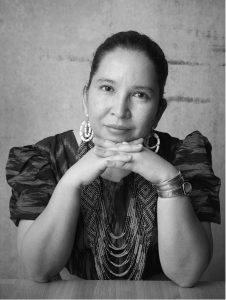 Amelyin Laro from the Philippines. Amelyn aims to tackle the problem of teenage pregnancy and gender-based violence in the Philippines. Her project is conceptualized to help the teachers to be fully equipped with the knowledge to teach their students about reproductive health and other issues related to women and gender equality. Teachers will also learn how to integrate gender into their curriculum and learning materials and apply more gender-sensitive teaching methodologies. This project aims to promote inclusive education and ensure that girls and boys will have equal access to learning opportunities and fair treatment in the learning process. In the long run, this project will help to reach equal rights and equal opportunities for all gender in all spheres of life. Moreover, Amelyn will promote the protection of children from all forms of gender-based violence, abuse, discrimination, and bullying in schools. Teaching Gender Equality is a project which aims to capacitate the target 100 High school teachers in Davao Occidental. With this project, Amelyin will help reach SDGs 4 and 5 – quality education and gender equality, in the Philippines.
Amelyin Laro from the Philippines. Amelyn aims to tackle the problem of teenage pregnancy and gender-based violence in the Philippines. Her project is conceptualized to help the teachers to be fully equipped with the knowledge to teach their students about reproductive health and other issues related to women and gender equality. Teachers will also learn how to integrate gender into their curriculum and learning materials and apply more gender-sensitive teaching methodologies. This project aims to promote inclusive education and ensure that girls and boys will have equal access to learning opportunities and fair treatment in the learning process. In the long run, this project will help to reach equal rights and equal opportunities for all gender in all spheres of life. Moreover, Amelyn will promote the protection of children from all forms of gender-based violence, abuse, discrimination, and bullying in schools. Teaching Gender Equality is a project which aims to capacitate the target 100 High school teachers in Davao Occidental. With this project, Amelyin will help reach SDGs 4 and 5 – quality education and gender equality, in the Philippines.
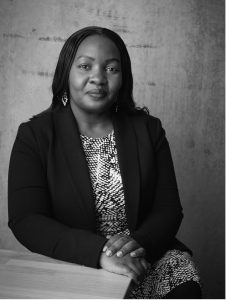 Cynthia Onyangore from Kenya. Her ISA project is centered around building an inclusive and sustainable African Indigenous Vegetables (AIVs) value chain in Uasin Gishu County (and eventually Kenya) for the female smallholders, by embracing a food systems approach in theory and practice. This Project will ensure that farmer livelihoods are improved, production processes are climate-smart and there is the inclusion of women in the chain, which will directly translate to improved livelihoods in their local communities. Additionally, she plans to integrate agroecological practices, biodiversity, and reduction in GHG emissions. To ensure circulatory systems are included in the project, she will strive to mainstream indigenous knowledge in cultivation and processing. The main output of her stay in Germany will be that African Indigenous Vegetables (AIVs) value chain is encapsulated in a model using a multistakeholder platform with empowered and included producers, and fresh and safe food reaching consumers. Her project will contribute to SDG 1- no poverty, SDG 2 – zero hunger, SDG 5 – gender equality, and SDG 13 – climate action.
Cynthia Onyangore from Kenya. Her ISA project is centered around building an inclusive and sustainable African Indigenous Vegetables (AIVs) value chain in Uasin Gishu County (and eventually Kenya) for the female smallholders, by embracing a food systems approach in theory and practice. This Project will ensure that farmer livelihoods are improved, production processes are climate-smart and there is the inclusion of women in the chain, which will directly translate to improved livelihoods in their local communities. Additionally, she plans to integrate agroecological practices, biodiversity, and reduction in GHG emissions. To ensure circulatory systems are included in the project, she will strive to mainstream indigenous knowledge in cultivation and processing. The main output of her stay in Germany will be that African Indigenous Vegetables (AIVs) value chain is encapsulated in a model using a multistakeholder platform with empowered and included producers, and fresh and safe food reaching consumers. Her project will contribute to SDG 1- no poverty, SDG 2 – zero hunger, SDG 5 – gender equality, and SDG 13 – climate action.
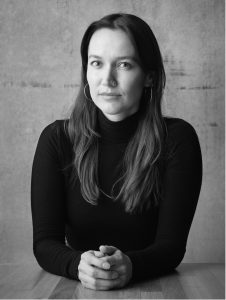 Ekaterina Gualoto from Ecuador. Soy Agricultora is a long-term project of Ekaterina that empowers female farmers and supports sustainable agriculture in the Galapagos. It began with exploring women’s role in the agriculture sector, showing the importance of their role in food security and sustainability, and revealing the constraints and challenges they face. She plans to develop an action framework based on an agroecological approach to eradicate hunger and poverty, halt biodiversity loss, build climate resilience, promote decent jobs and fair livelihoods, and support gender equality. Secondly, this ISA project seeks to amplify female farmers’ voices and make their contributions visible by portraying their life stories, with the help of mobile photography and video, showing the grace and grid they bring to farming, as a mechanism to empower them, and to promote awareness and connection among in the community. This project responds directly to SDG 1 – no poverty, SDG 2 – zero hunger, and SDG 5 – gender equality.
Ekaterina Gualoto from Ecuador. Soy Agricultora is a long-term project of Ekaterina that empowers female farmers and supports sustainable agriculture in the Galapagos. It began with exploring women’s role in the agriculture sector, showing the importance of their role in food security and sustainability, and revealing the constraints and challenges they face. She plans to develop an action framework based on an agroecological approach to eradicate hunger and poverty, halt biodiversity loss, build climate resilience, promote decent jobs and fair livelihoods, and support gender equality. Secondly, this ISA project seeks to amplify female farmers’ voices and make their contributions visible by portraying their life stories, with the help of mobile photography and video, showing the grace and grid they bring to farming, as a mechanism to empower them, and to promote awareness and connection among in the community. This project responds directly to SDG 1 – no poverty, SDG 2 – zero hunger, and SDG 5 – gender equality.
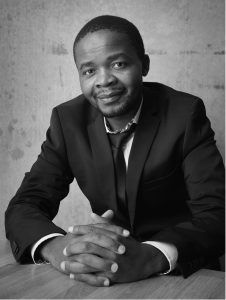 Eliot Jori from Zimbabwe. As an urban planner in Zimbabwe Eliot came to recognize a lack of urban gardens in and on the outskirts of the cities in Zimbabwe. His ISA project would be focused on learning from the experts in the field of urban gardening in Germany, gaining some practical knowledge from the best practice examples to eventually developing a system of small sustainable urban gardens in Harare. His solution helps not only to reduce hunger but also addresses the problem of food security as well as the ecological footprint of imported food. Urban agriculture will improve the lives of ordinary city residents by raising their income, improving their food baskets, and most importantly improving the climate conditions. By founding a system of sustainable urban gardens Eliot hopes to achieve SDG1 zero poverty, contribute to residents´good health and well-being – SDG3, and achieve sustainable cities – SDG 11 – where urban heat islands will be reduced by green urban farms.
Eliot Jori from Zimbabwe. As an urban planner in Zimbabwe Eliot came to recognize a lack of urban gardens in and on the outskirts of the cities in Zimbabwe. His ISA project would be focused on learning from the experts in the field of urban gardening in Germany, gaining some practical knowledge from the best practice examples to eventually developing a system of small sustainable urban gardens in Harare. His solution helps not only to reduce hunger but also addresses the problem of food security as well as the ecological footprint of imported food. Urban agriculture will improve the lives of ordinary city residents by raising their income, improving their food baskets, and most importantly improving the climate conditions. By founding a system of sustainable urban gardens Eliot hopes to achieve SDG1 zero poverty, contribute to residents´good health and well-being – SDG3, and achieve sustainable cities – SDG 11 – where urban heat islands will be reduced by green urban farms.
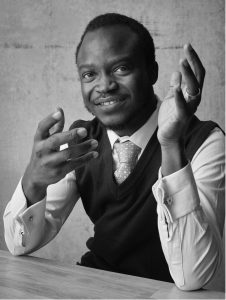 Ife-Oluwa O. Fadele (Caleb) from Nigeria. Caleb believes that the food production system in Nigeria must shift away from the traditional/conventional system that is dependent on rainfall and seasonality to a sustainable production system with the deployment of hydroponics farming practices. His ISA project is focused on the deployment of hydroponics farming technologies and practices to indigenous/rural people for increased production of fruit and leafy vegetables. He will be raising awareness, giving training, and educating on climate change, its impacts, and adaptation to show why hydroponics is a system that should be applied by indigenous people as it already is in developed agriculture. During his stay in Germany, he will be exposed to the best examples of hydroponics to learn the best adaptation strategy for indigenous communities. His project will address SDGs number 2 and 8 – zero hunger and decent work and economic growth, respectively.
Ife-Oluwa O. Fadele (Caleb) from Nigeria. Caleb believes that the food production system in Nigeria must shift away from the traditional/conventional system that is dependent on rainfall and seasonality to a sustainable production system with the deployment of hydroponics farming practices. His ISA project is focused on the deployment of hydroponics farming technologies and practices to indigenous/rural people for increased production of fruit and leafy vegetables. He will be raising awareness, giving training, and educating on climate change, its impacts, and adaptation to show why hydroponics is a system that should be applied by indigenous people as it already is in developed agriculture. During his stay in Germany, he will be exposed to the best examples of hydroponics to learn the best adaptation strategy for indigenous communities. His project will address SDGs number 2 and 8 – zero hunger and decent work and economic growth, respectively.
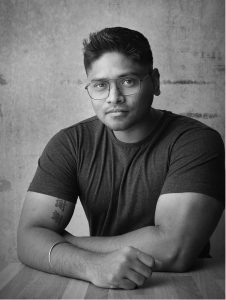 Manoj Chenthamarakshan from India. During his ISA stay, he will be creating a self-awareness framework for vulnerable children. The Superhero Project is an initiative to educate and affect the lives of children who feel a lack of confidence due to their school performance by applying Neuro-Linguistic Programming (NLP) techniques. “The Superhero Project, A quest to find your superpower” – is an interactive way to capture the attention of young minds to self-reflect and find their intelligence within them to empower a transformational mindset. His project is divided into 2 goals: creating the Documentary and Creative Journal. The Super Hero Project is designed first-of-its-kind with NLP techniques to make it practical and powerful. It is also a sustainable project because of the digital format of this project, and it is not bound to demographics or time. Manoj will be addressing SDG 4 – quality education.
Manoj Chenthamarakshan from India. During his ISA stay, he will be creating a self-awareness framework for vulnerable children. The Superhero Project is an initiative to educate and affect the lives of children who feel a lack of confidence due to their school performance by applying Neuro-Linguistic Programming (NLP) techniques. “The Superhero Project, A quest to find your superpower” – is an interactive way to capture the attention of young minds to self-reflect and find their intelligence within them to empower a transformational mindset. His project is divided into 2 goals: creating the Documentary and Creative Journal. The Super Hero Project is designed first-of-its-kind with NLP techniques to make it practical and powerful. It is also a sustainable project because of the digital format of this project, and it is not bound to demographics or time. Manoj will be addressing SDG 4 – quality education.
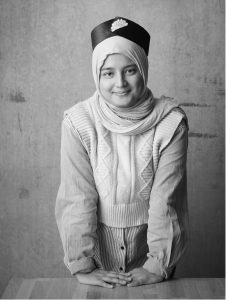 Marwa Werghemmi from Tunisia. The idea of her project is to target SDG4 (as a part of nonformal education): developing critical thinking skills for primary school learners as one of the life skills in the 21st century in rural areas in southern Tunisia. The idea will include training of 5000 students and 500 teachers at rural primary schools. Marwas´project will make it easier for teachers to apply critical thinking skills and peace education in schools, which is necessary due to the high level of violence. During her ISA stay, she will be preparing the educational guide – playing and dramatizing texts that will be converted into cartoon videos (accompanied by the department’s inspectors, the advisor in education, and the trainer in critical thinking & peace education). Finally, she plans to create a website for the initiative which provides an opportunity for everyone to access educational resources, learn more about the impact of the program, and exchange experiences.
Marwa Werghemmi from Tunisia. The idea of her project is to target SDG4 (as a part of nonformal education): developing critical thinking skills for primary school learners as one of the life skills in the 21st century in rural areas in southern Tunisia. The idea will include training of 5000 students and 500 teachers at rural primary schools. Marwas´project will make it easier for teachers to apply critical thinking skills and peace education in schools, which is necessary due to the high level of violence. During her ISA stay, she will be preparing the educational guide – playing and dramatizing texts that will be converted into cartoon videos (accompanied by the department’s inspectors, the advisor in education, and the trainer in critical thinking & peace education). Finally, she plans to create a website for the initiative which provides an opportunity for everyone to access educational resources, learn more about the impact of the program, and exchange experiences.
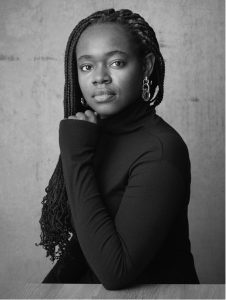 Obimdike L. Mmachukwu from Nigeria. During her stay in Hamburg, Germany, she will design a curriculum for implementing ecosystem restoration and raising nurseries in secondary schools, with intensive teaching on climate change. No primary or high school curriculum in Nigeria teaches the children deep knowledge of climate change environmental management, reforestation, environmental protection, justice, and sustainability. It has caused a lack of proper knowledge in managing our ecosystems, even among educated adults. With her ISA project, she aims to change that and to create awareness about environmental protection and management. Moreover, during her project implementation, she will be creating a campaign for indigenous economic tree planting in ten schools in the local area. By establishing climate change clubs and nurseries, schools will generate income to help low-income families pay for their children’s tuition. Her project will contribute to SDG 4 – quality education, SDG 13 – climate action, and SDG 15 – life on land.
Obimdike L. Mmachukwu from Nigeria. During her stay in Hamburg, Germany, she will design a curriculum for implementing ecosystem restoration and raising nurseries in secondary schools, with intensive teaching on climate change. No primary or high school curriculum in Nigeria teaches the children deep knowledge of climate change environmental management, reforestation, environmental protection, justice, and sustainability. It has caused a lack of proper knowledge in managing our ecosystems, even among educated adults. With her ISA project, she aims to change that and to create awareness about environmental protection and management. Moreover, during her project implementation, she will be creating a campaign for indigenous economic tree planting in ten schools in the local area. By establishing climate change clubs and nurseries, schools will generate income to help low-income families pay for their children’s tuition. Her project will contribute to SDG 4 – quality education, SDG 13 – climate action, and SDG 15 – life on land.
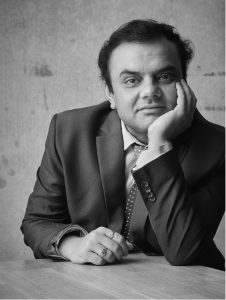 Pawan K. Sharma from India. His project – National Innovations in Climate Resilient Agriculture – will mainly be dealing with facilitating farmers in the adoption of location-specific climate-resilient technologies. It involves research on crops, livestock, natural resource management, and an integrated farming system approach to promoting adaptation and mitigation strategies in agriculture. One of the major activities during the implementation of the project will also include technology demonstrations on agricultural fields to teach farmers how to cope with current climate variability. ISA program will provide an opportunity to build a stronger mechanism through a better course of action after deliberations with the ISA team and other fellows. Pawan will be given an opportunity to learn from German climate-resilient agricultural practices to develop guidelines for farmers in rural India. His project will add to the achievement of SDG 2 – zero hunger, SDG 12 – sustainable consumption and production, and 13 – climate action.
Pawan K. Sharma from India. His project – National Innovations in Climate Resilient Agriculture – will mainly be dealing with facilitating farmers in the adoption of location-specific climate-resilient technologies. It involves research on crops, livestock, natural resource management, and an integrated farming system approach to promoting adaptation and mitigation strategies in agriculture. One of the major activities during the implementation of the project will also include technology demonstrations on agricultural fields to teach farmers how to cope with current climate variability. ISA program will provide an opportunity to build a stronger mechanism through a better course of action after deliberations with the ISA team and other fellows. Pawan will be given an opportunity to learn from German climate-resilient agricultural practices to develop guidelines for farmers in rural India. His project will add to the achievement of SDG 2 – zero hunger, SDG 12 – sustainable consumption and production, and 13 – climate action.
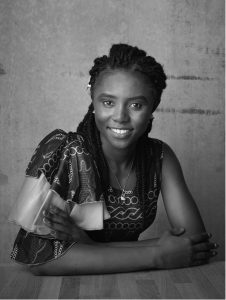 Perl Oben from Cameroon. The legal healthcare system is the focus of her project considering that it is scarcely practiced in Cameroon. Many healthcare providers seem not to know what to do in situations with possible legal implications for their patients, especially when dealing with assault victims. These victims are mostly female with a lack of education, and they experience social pressure not to pursue legal charges in assault situations. Therefore, Perl wants to create and effectively run a medicolegal website in Cameroon, which would serve as victim consultancy and training for health personnel on the legal aspects concerning their practice. She intends to build a network of peer educators who could orient people and answer basic questions. A relay with other experts such as psychiatrists and lawyers would be made for each case as needed. This exposure could as well increase the interest of healthcare providers to build a career in legal medicine. This project is in line with SDGs 3 – good health and well-being, and 5 – gender equality.
Perl Oben from Cameroon. The legal healthcare system is the focus of her project considering that it is scarcely practiced in Cameroon. Many healthcare providers seem not to know what to do in situations with possible legal implications for their patients, especially when dealing with assault victims. These victims are mostly female with a lack of education, and they experience social pressure not to pursue legal charges in assault situations. Therefore, Perl wants to create and effectively run a medicolegal website in Cameroon, which would serve as victim consultancy and training for health personnel on the legal aspects concerning their practice. She intends to build a network of peer educators who could orient people and answer basic questions. A relay with other experts such as psychiatrists and lawyers would be made for each case as needed. This exposure could as well increase the interest of healthcare providers to build a career in legal medicine. This project is in line with SDGs 3 – good health and well-being, and 5 – gender equality.
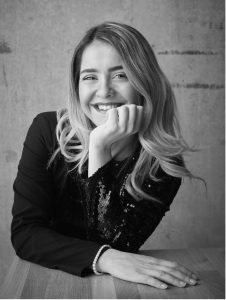 Tamar Abzianidze from Georgia. Her project is dedicated to changing the behavior regarding package recycling of more than 10 companies and 5000 people. In her previous project, she was encouraging smart shopping as the first cardboard and polyethylene recycling project “Give Cardboard & polyethylene box New life, Recycle with Oki Post”. She managed to get roughly 3200 customers to recycle cardboard & polyethylene boxes and she still encourages new customers through awareness-raising campaigns. Her ISA project will address the scarcity of sorting and recycling of packaging in Georgia by fulfilling 6 main steps: 1) conducting research, preparing articles, blogs, and vlogs on how a more sustainability-oriented country (Germany) is dealing with these problems; 2) promoting long-term partnerships between German and Georgian companies; 3) preparing relevant recommendations after comparing German and Georgian recycling companies; 4) sharing her experience via online webinars; 5) promoting female decent work representation in the recycling sector and 6) designing a digital and entertaining curriculum on recycling and climate change topics for pupils. Her ISA project supports SGDs 5, 12, and 17 – quality education, sustainable consumption and production, and partnership for the goals, respectively.
Tamar Abzianidze from Georgia. Her project is dedicated to changing the behavior regarding package recycling of more than 10 companies and 5000 people. In her previous project, she was encouraging smart shopping as the first cardboard and polyethylene recycling project “Give Cardboard & polyethylene box New life, Recycle with Oki Post”. She managed to get roughly 3200 customers to recycle cardboard & polyethylene boxes and she still encourages new customers through awareness-raising campaigns. Her ISA project will address the scarcity of sorting and recycling of packaging in Georgia by fulfilling 6 main steps: 1) conducting research, preparing articles, blogs, and vlogs on how a more sustainability-oriented country (Germany) is dealing with these problems; 2) promoting long-term partnerships between German and Georgian companies; 3) preparing relevant recommendations after comparing German and Georgian recycling companies; 4) sharing her experience via online webinars; 5) promoting female decent work representation in the recycling sector and 6) designing a digital and entertaining curriculum on recycling and climate change topics for pupils. Her ISA project supports SGDs 5, 12, and 17 – quality education, sustainable consumption and production, and partnership for the goals, respectively.
Please note that the project outlines are preliminary and will be further defined. Participants and their projects will be presented in detail, once they have arrived in Germany in our News Blog.
You would like to cooperate with one or more of the scholarship holders? Then please contact the Project Team.
